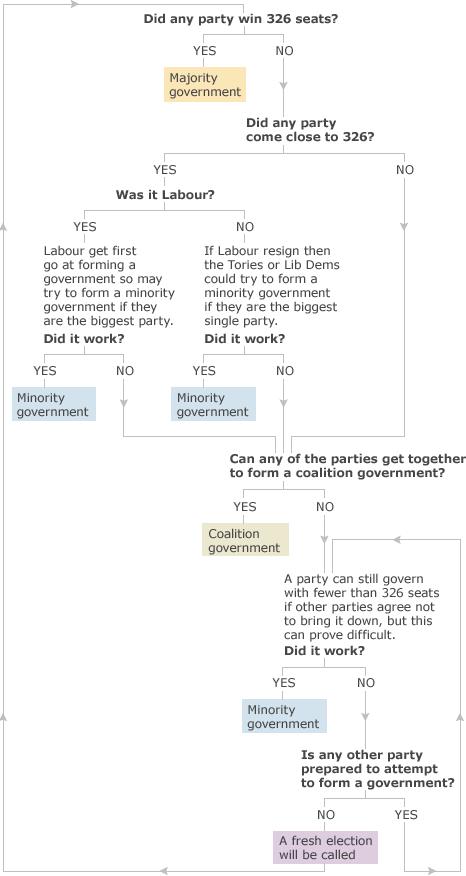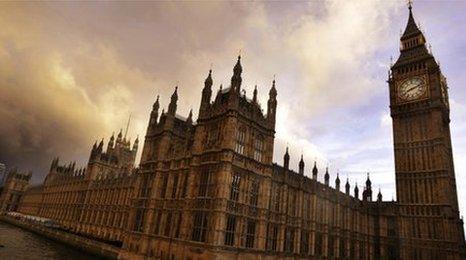Labour leader Gordon Brown says he'll step down
- Published
Prime Minister Gordon Brown has announced that he will resign as Labour leader.
He says that Labour are also holding talks with the Liberal Democrats after last Thursday's election produced Britain's first hung parliament since 1974.
He told reporters outside Number 10: "I have no desire to stay in my position longer than is needed to ensure the path to economic growth is ensured and the process of political reform we have agreed moves forward quickly."
Conservative leader David Cameron and Liberal Democrat leader Nick Clegg are still also trying to reach a deal after four days of talks.
Mr Clegg earlier urged people to "bear with us" as talks between the two parties continued.
The Tories won the most votes and MPs in the election, but failed to reach the 326 seat threshold that would hand them power automatically.
That magic number represents half of the 650 MPs at Westminster, so they need support from the Lib Dems to form a government.
At the moment Gordon Brown's still the Prime Minister as election rules say the party that ruled last time gets 'first dibs' on trying to put together another government.
Newsbeat guide to... a hung parliament
If talks between the Tories and Lib Dems fail, Labour has offered the Lib Dems talks and also met Mr Clegg at the weekend.
One of the key points of discussion will be the future stability of the British economy.
Speaking before talks on Monday Mr Clegg said they would try to make a decision as quickly as possible but that it was important not to make an arrangement that "won't stand the test of time".
The Conservatives have 306 seats, Labour have 258 and the Lib Dems have 57 seats.
The Conservatives were also the big winners in Wales, gaining five seats.
Quirky Lib Dem Lembit Opik, who once dated a Cheeky Girl, lost his Montgomeryshire seat.
In pictures: Election night 2010
In Scotland Labour remain the largest party with 41 MPs.
The Conservatives failed to make any gains, and still have just one MP, in Dumfriesshire, Clydesdale and Tweeddale.
There was also little change in Northern Ireland.
However, DUP leader Peter Robinson lost his East Belfast seat to Alliance.
In England, former Home Secretary Jacqui Smith lost her seat in Redditch.
The UK has its first Green MP, Caroline Lucas, who won Brighton Pavillion.
The leader of the British National party Nick Griffin failed to win in Barking in east London. Labour's Margaret Hodge held on to her seat with more than 24 thousand votes - 16 thousand more than any other candidate.
It was a high turnout with 61% of residents voting and Nick Griffin claims that counted against the BNP.
What happens after a general election?

- Published5 May 2010
